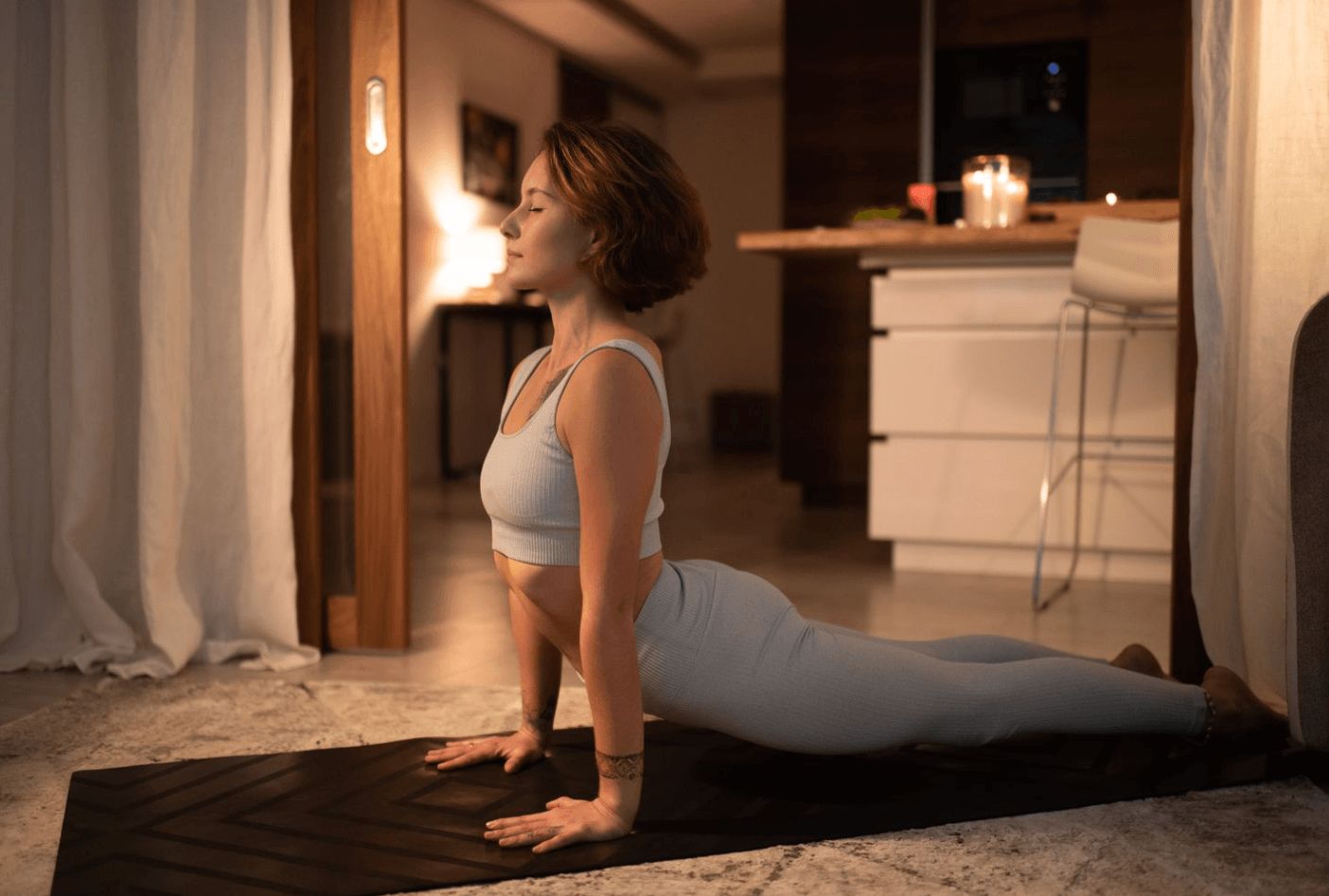- Thriving Guide
- Posts
- Exercising Before Bed May Disrupt Your Sleep
Exercising Before Bed May Disrupt Your Sleep
While light evening movement can be calming, vigorous workouts too close to bedtime may keep you up at night.

Squeezing in a workout after a long day might feel productive or even relaxing. But if you're struggling to fall asleep or stay asleep, your late-night gym routine could be to blame. While regular exercise is a powerful tool for improving sleep, when you exercise matters just as much as how you exercise.
Does Working Out at Night Affect Sleep?
Yes and it depends on the intensity. Moderate to vigorous physical activity too close to bedtime can overstimulate your nervous system, increase your core body temperature, and delay the natural processes that help you wind down. These effects can:
Decrease sleep quality
Make it harder to fall asleep
Lead to more frequent nighttime awakenings
Your body naturally cools down and shifts into a rest-and-digest state as you prepare for sleep. When you exercise intensely late in the day, you raise your heart rate, core temperature, and cortisol levels, all of which work against restful sleep.
When Should You Stop Exercising Before Bed?
Experts generally recommend finishing moderate or vigorous exercise at least one to two hours before bedtime. This gives your body enough time to cool down, relax, and transition into sleep mode. Light physical activity, like a short walk or gentle stretching, can be done closer to bedtime within an hour or so.
Benefits of Gentle Movement Before Sleep
If your day is packed and the evening is your only window for movement, don’t stress light activity may actually help your sleep. Gentle movement can:
Reduce muscle tension
Improve digestion and blood sugar regulation
Promote relaxation
Support overall sleep quality
Best Types of Exercise Before Bed
If you do choose to move in the evening, opt for slow, mindful, and low-impact activities that calm the body rather than energize it. Some ideal options include:
Restorative yoga: Practices like yoga nidra help slow your breathing and calm the nervous system.
Tai chi: This slow, rhythmic movement focuses on breathing and body awareness, which can help transition your body toward rest.
Leisurely walking: A slow walk after dinner may aid digestion and help release the day’s tension without overstimulation.
A good rule of thumb: if your heart rate and breathing are still elevated after your workout, it’s probably too intense for pre-bedtime activity.
Exercises to Avoid Before Bedtime
To protect your sleep quality, try to avoid high-intensity workouts within a few hours of bedtime. These include:
Running
Cycling or spinning
Swimming laps
Dancing
Brisk walking or jogging
Heavy strength training
Competitive sports like tennis or basketball
Intense yard work or gardening
These activities can make it harder for your body to downshift, especially if they’re performed within 1–2 hours of going to bed.
Tips for Exercising at Night Without Disrupting Sleep
If evening is your only time to work out, don’t worry you can still stay active without sabotaging your sleep. Here’s how:
Front-load the intensity: Do high-energy exercises earlier in your workout, followed by a calming cooldown.
Cool down properly: End each session with light stretching, deep breathing, or a slow walk.
Create a relaxing buffer: Take a warm shower, meditate, or do light reading after your workout to help your body and mind shift gears.
Track your sleep patterns: If you notice disrupted sleep, adjust the timing or intensity of your workout accordingly.
Why Morning Workouts Might Be Better
Morning and early-afternoon workouts tend to support the body’s natural circadian rhythm. They can also:
Help regulate hormone levels, including cortisol and melatonin
Improve energy and focus throughout the day
Set a calming tone for the evening hours
In fact, research has shown that exercising in the morning can improve sleep quality and help you fall asleep faster at night without the risk of overstimulating your system right before bed.
The Bottom Line
Exercising too close to bedtime especially at high intensity can interfere with your ability to fall asleep and stay asleep. However, light activities like gentle yoga or slow walking can support relaxation and healthy sleep. If you can, aim to exercise earlier in the day, but if evening workouts are your only option, make smart choices about timing, intensity, and post-workout wind-downs.
If you found this article helpful, consider sharing it or subscribing to our newsletter for more insights.